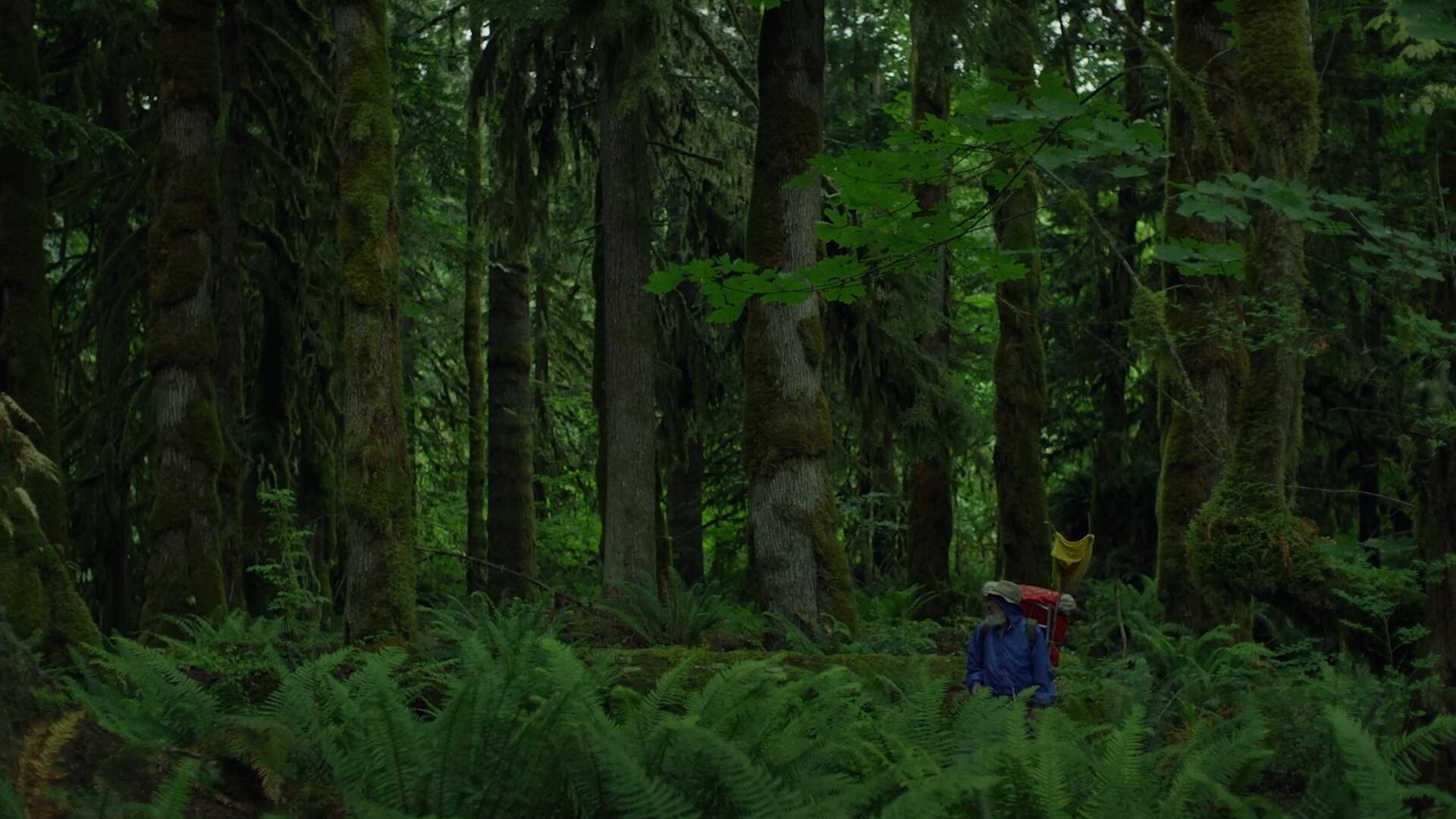WW presents "Distant Voices," a daily video interview for the era of social distancing. Our reporters are asking Portlanders what they're doing during quarantine
When Tom Putnam went into the Pacific Northwest wilderness last year to make a movie, he couldn't have known that several of the locations that appear onscreen would be reduced to ash by the time anyone got to see it.
But The Dark Divide, the director's new film, is arriving at an unfortunately timely moment—it could even be called prophetic.
"Weirdly, we talk about the fires and how they seem to get worse year after year," says Putnam, who grew up just outside Portland. "And now, I think the place that exact conversation happened in the film is about to burn down."
In the movie, Arrested Development's David Cross portrays Robert Michael Pyle, a well-regarded lepidopterist, prolific author and college professor who, in 1995, spent six weeks trekking across Gifford Pinchot National Forest in southern Washington searching for new butterfly species.
The film takes its name from the resulting book, Where Bigfoot Walks: Crossing the Dark Divide, but draws upon details from six others written by Pyle and touches on everything from his investigation of the Sasquatch myth to the battle he witnessed between loggers and conservationists to the death of his wife, Thea, from ovarian cancer.
For Putnam, though, The Dark Divide isn't just a biopic. He spent a great deal of his childhood in Gifford Pinchot himself, hiking and fishing and camping, and discovering Pyle's writing a decade ago reconnected him with the youth he left behind when he decamped to Los Angeles to pursue his filmmaking career. He shot the movie in many of the same places Pyle walked, including areas where "a film crew should not be"—and with 18,000 acres of Gifford Pinchot currently ablaze, that's only made it more personal.
"It really hits home for me," Putnam says. "This is such an important place, and we're not doing a good enough job to protect it. You can talk about logging, you can talk about global warming, you can talk about raking the forest and all these things, and it's complicated. There isn't one solution to it."
See more Distant Voices interviews here.

